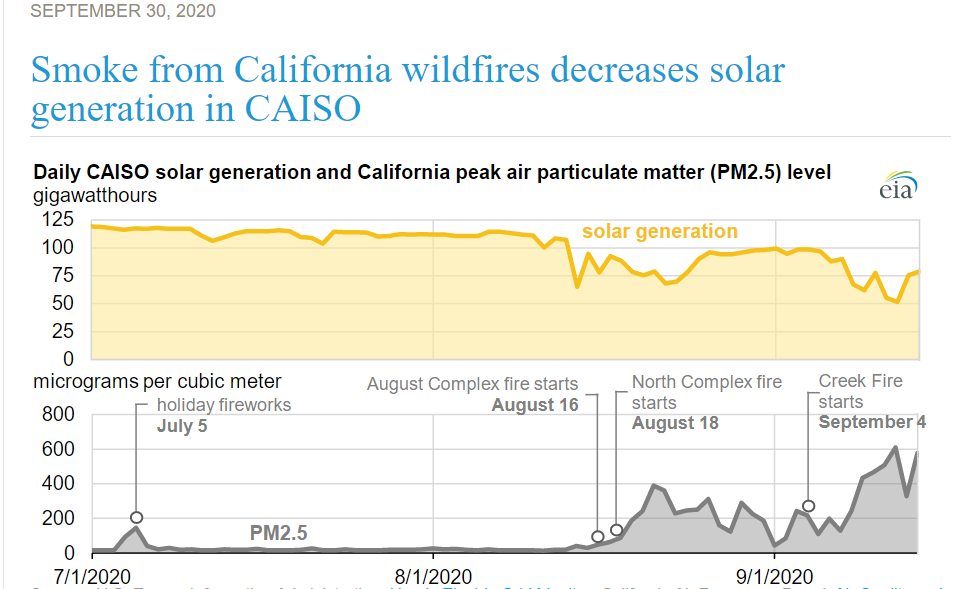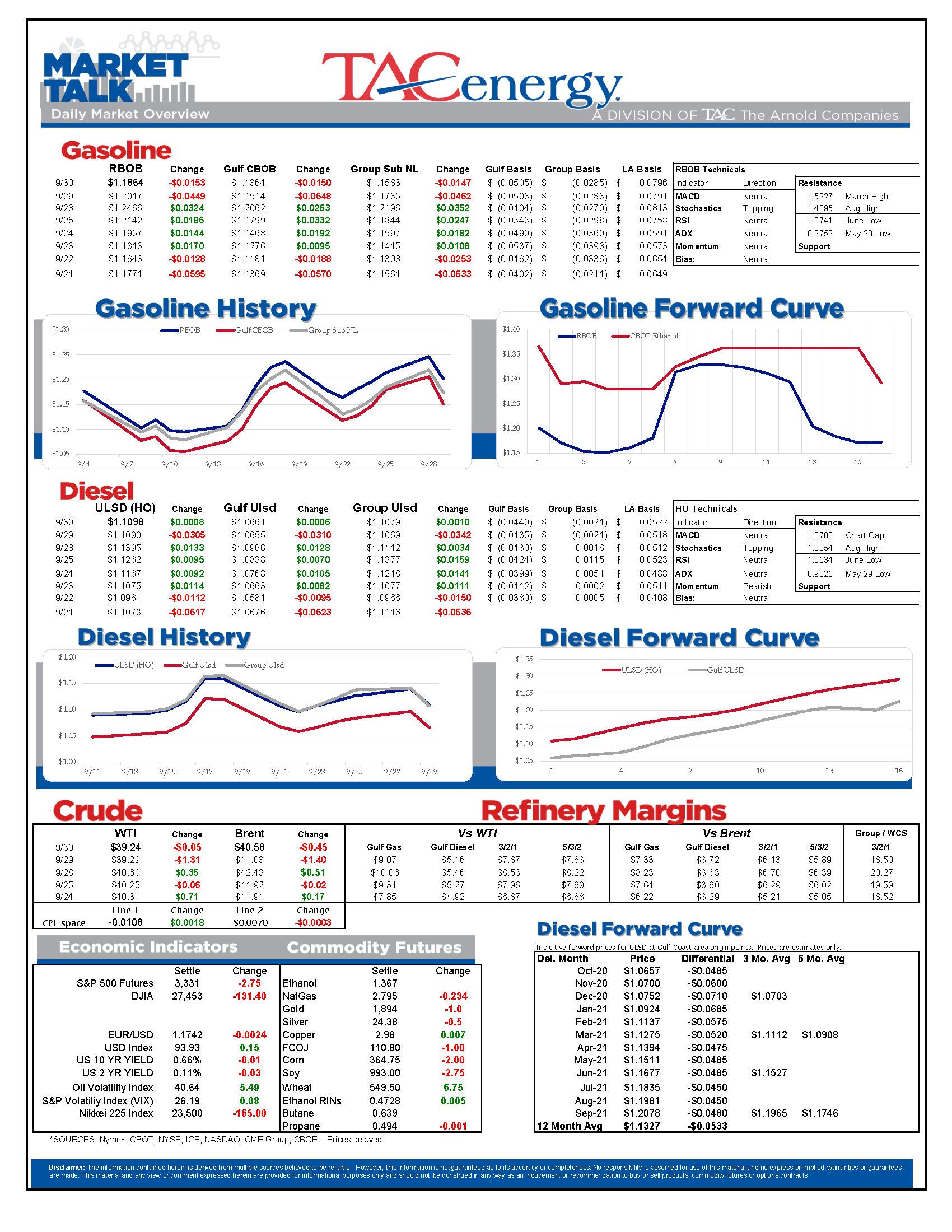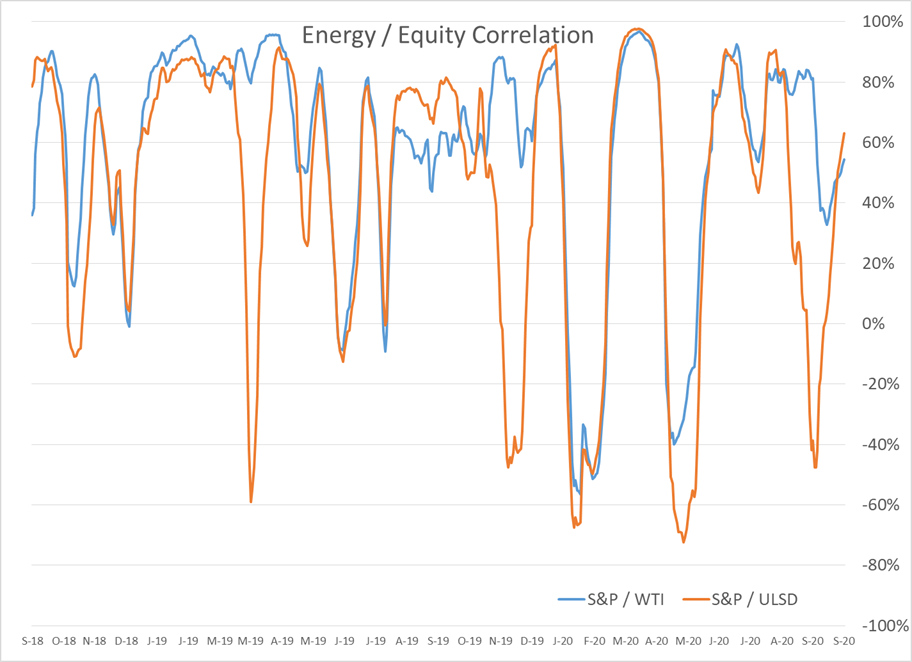Financial Markets Unimpressed By Debate Performance

The wheels came off the energy bus Tuesday, as a four day rally was largely wiped out in a single session. Gasoline prices are now leading the complex lower for a second day, after the leading the move higher during the run up.
This is the second cycle of the four-days-up, two-days-down pattern for RBOB futures in the back half of September, with a net result of prices increasing seven cents during that time. Nearly half of those gains will be wiped out when the November contract takes over the prompt position tomorrow, as we slide down the backwardation curve heading into winter. That roll will leave gasoline prices just one decent sell-off away from the lows of the summer trading range, with the seasonal demand drop looming and threatening another move below $1 - should that support finally break.
The API report seems to be driving the direction in the early going, as a build in gasoline stocks has RBOB under pressure while draws in distillate and crude inventories has those contracts holding steady. The DOE’s weekly report is due out at its normal time, 9:30 Central. October RBOB and ULSD contracts are expiring today, so watch the November contracts (RBX & HOX) for direction in the racks.
Financial markets were apparently not impressed by the debate performance last night, which foreshadows more volatility over the next month as the election looms and potentially even more price swings should the results be contested. While the correlation between equity and energy prices has been hit or miss this year, any major moves in stocks – particularly to the downside – have the ability to pull the energy complex (which is just a fraction of the size of equity markets in dollar terms) along for the ride.
As the momentum builds towards clean(er) energy options, it should be no surprise that Wall Street is being flooded with Green Energy acquisition companies (aka SPAC’s) seeking to capitalize on investor’s desire for new ideas, whether or not they’re proven. The movement certainly has a dot-com bubble feel about it, as the majority of the companies being purchased have no revenue stream, suggesting the move by PE groups to spin them off into the public markets has less to do with creating sustainable green energy platforms, and more with racing to put more green in their own pockets before the appetite for IPOs of unproven companies market dries up.
JP Morgan has reached a settlement with the CFTC and other agencies, and will pay a $920 million fine for trade spoofing in metal and treasury markets. There’s plenty of evidence that similar forms of manipulation have been happening in energy markets over the years as well, but it remains to be seen if any of those cases will come to light.
Marathon began implementing job cuts nationwide Tuesday, after announcing plans earlier this year to reduce workforce due to demand destruction. Shell is also announcing plans to cut 7,000-9,000 jobs over the next three years, but did not indicate where those cuts would take place.
Stop Smoking: The EIA published an interesting report on the negative impact California’s wildfires are having on solar electricity production, highlighting yet another challenge with the reliability of the state’s power grid.
Click here to download a PDF of today's TACenergy Market Talk.
Latest Posts
Energy Markets Trading Quietly In The Red As Ethanol Prices Rally To Five-Month High
The Struggle For Renewable Producers Continues As A Rapid Influx Of Supply And Crashing Credit Prices Make Biodiesel
After Years Of Backwardation, Diesel Prices Have Slipped Into Contango Over The Past Week
Gasoline Futures Are Leading The Way Lower This Morning
Social Media
News & Views
View All
Energy Markets Trading Quietly In The Red As Ethanol Prices Rally To Five-Month High
Energy markets are trading quietly in the red to start Wednesday’s session after a healthy bounce Tuesday afternoon suggested the Israel-Iran-linked liquidation had finally run its course.
There are reports of more Ukrainian strikes on Russian energy assets overnight, but the sources are sketchy so far, and the market doesn’t seem to be reacting as if this is legitimate news.
Ethanol prices have rallied to a 5-month high this week as corn and other grain prices have rallied after the latest crop progress update highlighted risks to farmers this year, lower grain export expectations from Ukraine, and the approval of E15 blends this summer despite the fact it pollutes more. The rally in grain and renewables prices has also helped RIN values find a bid after it looked like they were about to test their 4-year lows last week.
The API reported small changes in refined product inventories last week, with gasoline stocks down about 600,000, while distillates were up 724,000. Crude oil inventories increased by 3.2 million barrels according to the industry-group estimates. The DOE’s weekly report is due out at its normal time this morning.
Total reported another upset at its Port Arthur refinery that’s been a frequent flier on the TCEQ alerts since the January deep freeze knocked it offline and damaged multiple operating units. This latest upset seems minor as the un-named unit impacted was returned to normal operations in under an hour. Gulf Coast basis markets have shrugged off most reports of refinery upsets this year as the region remains well supplied, and it’s unlikely we’ll see any impact from this news.
California conversely reacted in a big way to reports of an upset at Chevron’s El Segundo refinery outside of LA, with CARBOB basis values jumping by more than a dime. Energy News Today continued to show its value by reporting the upset before the flaring notice was even reported to area regulators, proving once again it’s ahead of the curve on refinery-related events. Another industry news outlet meanwhile struggled just to remember where the country’s largest diesel seller is located.
Click here to download a PDF of today's TACenergy Market Talk

The Struggle For Renewable Producers Continues As A Rapid Influx Of Supply And Crashing Credit Prices Make Biodiesel
The sigh of relief selloff continues in energy markets Tuesday morning, with gasoline prices now down more than 20 cents in 7 sessions, while diesel prices have dropped 26 cents in the past 12. Crude oil prices are within a few pennies of reaching a 1 month low as a lack of headlines from the world’s hot spots allows some reflection into the state of the world’s spare capacity for both oil and refined products.
Gasoline prices are trading near a 6-week low this morning, but still need to fall about another nickel in order to break the weekly trendline that pushed prices steadily higher since December. If that trend breaks, it will be safer to say that we saw the end of the spring gasoline rally on April 12th for the 2nd year in a row. Last year RBOB futures peaked on April 12 at $2.8943 and bottomed out on May 4th at $2.2500. The high (at this point) for this year was set on April 12th at $2.8516, and the low overnight was $2.6454.
It’s not just energy commodities that are seeing an unwind of the “flight to safety” trade: Gold prices had their biggest selloff in 2 years Monday and continue to point lower today. Just how much money poured into commodities in the weeks leading up to the direct confrontation between Israel and Iran is unclear, but we have seen in year’s past that these unwind-events can create a snowball effect as traders can be forced to sell to cover their margin calls.
Supply > Demand: The EIA this morning highlighted the record setting demand for natural gas in the US last year, which was not nearly enough to offset the glut of supply that forced prices to a record low in February. A shortage of natural gas in Europe was a key driver of the chaotic markets that smashed just about every record in 2022, and an excess of natural gas supply in Europe and the US this year is acting as a buffer, particularly on diesel prices.
The struggle for renewable producers continues as a rapid influx of supply and crashing credit prices make Biodiesel, RD and SAF unprofitable for many. In addition to the plant closures announced in the past 6 months, Vertex Energy reported Monday it’s operating its Renewable Diesel facility in Mobile AL at just 50% of capacity in Q1. The truly scary part for many is that the $1/gallon Blender's tax credit ends this year and is being replaced by the “Clean” Fuel production credit that forces producers to prove their emissions reductions in order to qualify for an increased subsidy. It’s impossible to say at this point how much the net reduction will be for domestic producers, but importers will get nothing, and at current CI values, many biodiesel producers may see their “blend credit” cut by more than half.
Click here to download a PDF of today's TACenergy Market Talk.

After Years Of Backwardation, Diesel Prices Have Slipped Into Contango Over The Past Week
The pullback continues for energy prices as violence in the Middle East looks like it won’t rapidly expand, and financial markets continue to struggle with a higher-for-longer interest rate reality.
After years of backwardation, diesel prices have slipped into contango over the past week, despite multiple canal disruption concerns of reduced exports coming out of Russia. A Reuters article highlights how sluggish demand in Europe, and a glut of Asian supply [thanks to the rapid influx of new refining capacity over the past 2 years] is contributing to the changing market structure. This sudden weakness in diesel is also leading many refiners to reconsider their max-diesel output stance that had been key to their record setting margins in 2022 and 2023.
Money managers were reducing their bets on higher energy prices last week, in what appears to be an unwind of the positions added the prior week when it seemed like we might have an all-out war between Israel and Iran. The exception to the reduction in speculative length was the Brent crude oil contract which saw its money manager positions increase for a 4th week to reach a 3-year high. Open interest in crude oil contracts is also increasing to multi-year highs as new money flows into the energy space as a hedge of both inflation and geopolitical concerns, which could contribute to a tick higher in volatility if the sell-off continues this week as the bandwagon jumpers may soon be looking for a new ride.
Baker Hughes reported a net increase of 5 oil rigs drilling in the US last week, while natural gas rigs dropped by 2 on the week to a fresh 2 year low. The Permian basin has quietly added 8 more rigs in the past 4 weeks as producers in that region try to find a way around the shipping bottlenecks to get their otherwise profitable production to market. An RBN note last week highlighted how the lack of natural gas pipeline capacity will limit crude oil production capacity in the basin, and Kinder Morgan highlighted the need for another pipe in its latest earnings call.
Valero reported an upset at its Corpus Christi West refinery Saturday, although it appears that the brief flaring didn’t reduce operational levels.
Click here to download a PDF of today's TACenergy Market Talk.


